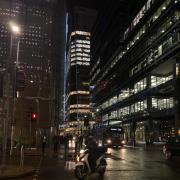
When thinking of what to write for my article this month, I found it hard to avoid the topic of COVID-19. I wanted to do something different and something more distancing in these hard times whilst remaining up to date and informative. After a bit of research, I came across the interesting subject of desensitisation and I found myself drawing parallels with the current pandemic and how specifically teenagers are dealing with it.
What is desensitisation? In what way is it relevant now?
The desensitisation theory suggests that prolonged exposure to a stimulus will decrease the reaction to it. For example, if aggression is presented to us daily, the response to it will be less severe than before. This can be seen in the constant playing of computer war games and according to desensitisation, individuals may not respond to real aggression well or at all after watching or playing them and could be more likely to accept violence or even respond aggressively themselves in real-life situations.
This automatic response of fear (‘fight or flight’), where adrenaline increases and usually we remove ourselves from the danger, goes back to our original ancestors. However, as it was also adaptive for them to ‘get used to’ some dangers, such as heights if climbing trees or being burnt when handling fire. They became accustomed to these dangerous stimuli in response to the environment, but now the situation is different.
In relation to the modern world, desensitisation can be seen particularly in Generation Z (those of who are now roughly 8-23 years old). Growing up in the age of 9/11 (and countless other terror attacks) and the impending climate crisis has ‘worn down’ their responses to danger and global disasters. The information overload, caused by the fast-moving and constantly changing flood of input from social media and immediate access to breaking news, of these innumerable tragedies over the past few years has increased the rate of the desensitization ultimately leading to teens becoming ‘unfazed’ by such events.
In the case of the coronavirus pandemic, desensitisation can be seen through the frequent creation and sharing of memes on social media platforms. Some are not at all sensitive or considerate to the impacts that COVID-19 will have on the economy and our society as we know it, not to mention the number of loved ones people will lose. Some could argue that this loss of sensitivity to the crisis could create more hazards such as teenagers misjudging the danger and not self-isolating and therefore putting others in jeopardy.
How can we possibly slow this rapid desensitisation that we once used to simply overcome small dangers like climbing trees but now threatens lives and distances the younger generations more than ever? How will our future look when today’s teens become tomorrow’s politicians, desensitised to the world and unaware of the gravity of catastrophes to come? How can we slow it down?
The current lockdown pushes all of us even more into the virtual world and is making it even harder to connect with reality, especially for our youth who’s social and academic lives now revolve around the internet. Or does it? We can all take this unique opportunity to refocus on what is real and I am finding that I need to talk to friends and family more, not just consume entertainment.
In the end, it comes down to finding different ways to bring credibility to situations through real people with real lives. We are not insensitive to that.


























